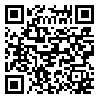Volume 9, Issue 4 (2025)
Manage Strat Health Syst 2025, 9(4): 281-283 |
Back to browse issues page
Download citation:
BibTeX | RIS | EndNote | Medlars | ProCite | Reference Manager | RefWorks
Send citation to:



BibTeX | RIS | EndNote | Medlars | ProCite | Reference Manager | RefWorks
Send citation to:
Emamgholipour Sefiddashti S, Forghani Dehnavi S S. Organ Donation and Transplantation Panel: Current Status, Future Challenges. Manage Strat Health Syst 2025; 9 (4) :281-283
URL: http://mshsj.ssu.ac.ir/article-1-817-en.html
URL: http://mshsj.ssu.ac.ir/article-1-817-en.html
1- Professor, Department of Management, Policy and Health Economics, School of Public Health, Tehran University of Medical Sciences, Tehran, Iran
2- Ph.D. student of Health Economics, Department of Management, Policy and Health Economics, School of Public Health, Tehran University of Medical Sciences, Tehran, Iran ,ss.forghani.d@gmail.com
2- Ph.D. student of Health Economics, Department of Management, Policy and Health Economics, School of Public Health, Tehran University of Medical Sciences, Tehran, Iran ,
Abstract: (1092 Views)
There are several treatment methods to treat patients who have lost the normal function of body organs, among which, transplantation is the most effective treatment method. It is important to provide a transplanted organ to perform this operation. The current situation is such that there is a significant difference between the supply and demand of the transplanted organ. Transplant organ trafficking exists almost everywhere in the world, and most of the victims, who entered this path due to lack of awareness of the consequences, especially with the motive of financial gain, regret their work if they survive. In order to balance this market, countries should develop their processes and health systems in such a way that the supply of transplanted organs (from living or deceased donors) increase legally. Otherwise, through strategies such as black market, human trafficking and organ trafficking, the balance will be established. The index of organ donation from living donor and deceased donor per one million people in Iran has a significant distance from the standard and ideal situation. Therefore, strategies and actions should be planned and implemented at the micro and macro level by following the example of successful countries to manage this issue.
Send email to the article author
| Rights and permissions | |
 |
This work is licensed under a Creative Commons Attribution-NonCommercial 4.0 International License. |







